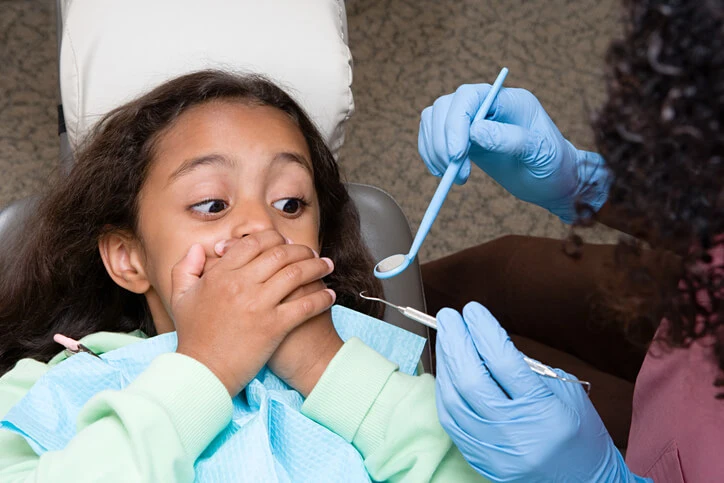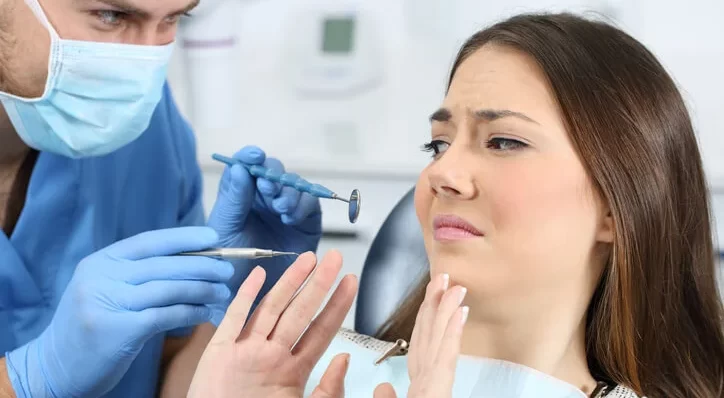Dental anxiety, a prevalent condition affecting individuals of all ages, poses significant challenges for both patients and dental professionals. The fear of dental procedures often results in avoidance of necessary treatments, leading to deteriorating oral health. Understanding the root causes, effects, and effective coping strategies for dental anxiety is crucial in addressing this issue.
Table of Contents
ToggleCauses of Dental Anxiety
Several factors contribute to the development of dental anxiety:
- Past Traumatic Experiences
- Fear of Pain
- Loss of Control
- Embarrassment or Self-Consciousness
- Fear of Instruments and Sounds
Past Traumatic Experiences
Negative encounters or painful procedures during earlier dental visits can instigate fear and anxiety, creating a lasting impact on an individual’s perception of dental care.
Fear of Pain
The anticipation of pain or discomfort during dental procedures is a common trigger for anxiety. This fear is often exacerbated by stories from others or media portrayals.
Loss of Control
Patients may feel vulnerable and out of control when confined to a dental chair, intensifying their anxiety.
Embarrassment or Self-Consciousness
Concerns about the appearance of their teeth or mouth may cause individuals to feel self-conscious, leading to anxiety about dental visits.
Fear of Instruments and Sounds
The sights and sounds of dental tools can evoke fear due to their perceived sharpness and unfamiliar noises.
Effects of Dental Anxiety
The consequences of dental anxiety extend beyond oral health:
- Avoidance Behavior
- Deteriorating Oral Health
- Psychological Impact
Avoidance Behavior
Fear of dental procedures often leads to avoidance of dental visits altogether, resulting in the neglect of oral health and the exacerbation of dental issues.
Deteriorating Oral Health
Neglected dental problems progress, leading to more extensive and invasive treatments in the future. Untreated oral issues can affect overall health, causing systemic problems.
Psychological Impact
Dental anxiety can cause significant stress and psychological distress, impacting an individual’s overall quality of life. It can lead to increased levels of anxiety and, in severe cases, affect social interactions and self-esteem.
Coping Strategies for Dental Anxiety

Effective coping mechanisms can help individuals manage dental anxiety:
- Communication with the Dentist
- Gradual Exposure
- Relaxation Techniques
- Sedation Dentistry
- Behavioral Therapy
Communication with the Dentist
Openly discussing fears and concerns with the dentist helps establish trust and allows for the development of a personalized, step-by-step plan for treatment.
Gradual Exposure
Gradually exposing oneself to dental environments, starting with short, non-invasive visits, can help desensitize fear over time.
Relaxation Techniques
Practice relaxation techniques such as deep breathing, meditation, or visualization to reduce anxiety levels before and during dental appointments.
Sedation Dentistry
For individuals with severe anxiety, sedation options like nitrous oxide or oral sedatives can help manage fear and discomfort during procedures.
Behavioral Therapy
Cognitive-behavioral therapy (CBT) and other therapeutic approaches can address the root causes of anxiety and help modify thought patterns related to dental visits.
Addressing Dental Anxiety in Practice
Dental professionals can employ several strategies to create a more comfortable environment for anxious patients:
- Empathy and Understanding
- Clear Communication
- Creating a Relaxing Environment
- Offering Options
Empathy and Understanding
Dentists and staff members should demonstrate empathy, actively listen to patients’ concerns, and provide reassurance throughout the process.
Clear Communication
Explaining procedures in a non-threatening manner, using simple language and visuals, helps demystify the process and reduces anxiety.
Creating a Relaxing Environment
Calming music, comfortable seating, and distractions like TV screens can help create a more relaxed atmosphere in the dental office.
Offering Options
Providing options for breaks during procedures, allowing patients to signal for pauses, and using numbing gels or sprays can enhance comfort during treatments.
Innovative Approaches in Addressing Dental Anxiety
- Virtual Reality (VR) and Distraction Techniques
- Artificial Intelligence (AI) in Patient Care
- Tele-Dentistry and Remote Consultations
Virtual Reality (VR) and Distraction Techniques
Incorporating VR technology or distraction techniques like watching movies or engaging in immersive activities during procedures can divert patients’ attention, reducing anxiety levels.
Artificial Intelligence (AI) in Patient Care
AI-powered tools can personalize patient experiences by analyzing preferences, providing tailored information, and offering calming techniques, enhancing the overall dental visit.
Tele-Dentistry and Remote Consultations
Offering remote consultations through video calls allows patients to discuss concerns from the comfort of their homes, easing stress before the actual dental appointment.
Special Considerations for Pediatric Dental Anxiety
Children often experience dental anxiety differently. Strategies for pediatric patients may include:
- Child-Centric Environment
- Positive Reinforcement
- Tell-Show-Do Technique
Child-Centric Environment
Creating a child-friendly atmosphere with colorful decor, toys, and engaging activities can alleviate anxiety among young patients.
Positive Reinforcement
Using positive reinforcement, such as praise or small rewards, can help children associate dental visits with positive experiences.
Tell-Show-Do Technique
Gradually introducing dental tools and procedures in a non-threatening manner can reduce fear by familiarizing children with the process.
The Role of Education and Awareness
Educating both patients and the general public about the importance of regular dental visits and dispelling myths surrounding dental procedures can contribute significantly to reducing anxiety levels. Increased awareness through community programs, social media, and informative campaigns can encourage individuals to seek dental care without fear.
Overcoming Barriers to Accessing Care
Addressing dental anxiety is vital in reducing barriers to accessing dental care. However, financial constraints, lack of insurance coverage, and limited availability of specialized anxiety-focused dental services can hinder individuals from seeking necessary treatments. Efforts to make dental care more affordable and accessible, along with specialized anxiety management programs in dental offices, can bridge these gaps.
Long-Term Impact of Managing Dental Anxiety
Successfully managing dental anxiety not only improves oral health but also enhances overall well-being. Individuals who overcome their fears often experience improved self-confidence, better social interactions, and a higher quality of life. Moreover, maintaining good oral health reduces the risk of systemic health issues linked to poor dental hygiene.
Conclusion
Dental anxiety is a prevalent issue that can significantly impact oral health and overall well-being. Recognizing its causes, effects, and employing effective coping strategies is crucial in helping individuals overcome their fears and access essential dental care. Through open communication, gradual exposure, and a supportive dental environment, both patients and dental professionals can work together to alleviate dental anxiety and promote better oral health for all.
Employing a multifaceted approach that involves innovative technologies, tailored strategies for different age groups, increased awareness, and improved accessibility to care is pivotal in addressing this challenge. By nurturing a supportive environment, fostering open communication, and utilizing evolving techniques, dental professionals can empower individuals to overcome their fears, prioritize oral health, and embrace dental visits without undue anxiety.

